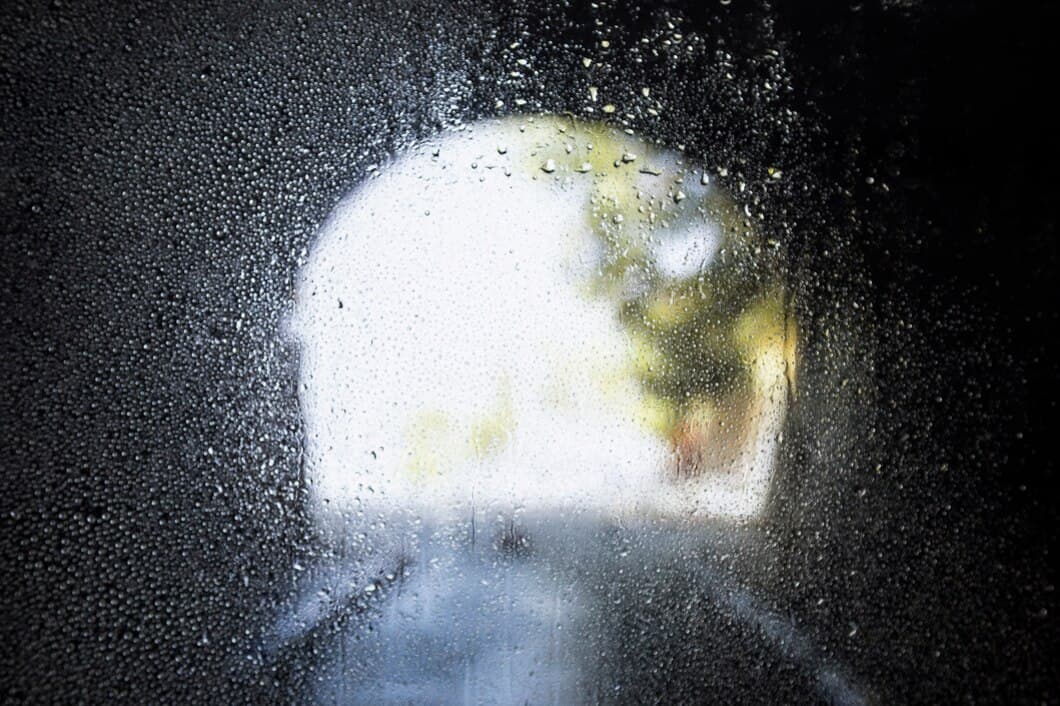
Windshield wipers are an essential part of any vehicle, but they can deteriorate over time due to a number of factors. These factors can include exposure to the sun, rain, snow, ice, and dirt. In addition, the rubber on the wipers can become hard and brittle, which can reduce their effectiveness. As a result, it is important to regularly inspect your windshield wipers and replace them when they start to show signs of wear.
There are a few things you can do to help extend the life of your windshield wipers. First, try to avoid parking your car in direct sunlight. Second, clean your windshield wipers regularly with a mild soap and water solution. Third, apply a rubber protectant to the wipers every few months. By following these tips, you can help keep your windshield wipers in good condition and ensure that you have a clear view of the road ahead.
Exposure to sunlight
Ultraviolet (UV) radiation from the sun can damage the rubber components of windshield wipers over time, causing them to become brittle and crack. This damage can be accelerated by extreme heat, such as that found in hot climates or during the summer months. To protect your windshield wipers from the sun's harmful rays, it is important to park your car in the shade whenever possible. You can also use a windshield sunscreen to provide additional protection.
Another way to protect your windshield wipers from sunlight is to clean them regularly. Dirt and debris can build up on the wipers over time, blocking the UV rays from reaching the rubber. This can help to extend the life of your wipers and keep them working properly.
If you notice that your windshield wipers are starting to show signs of wear, such as cracking or brittleness, it is important to replace them as soon as possible. Worn wipers can reduce your visibility while driving, which can be dangerous. Replacing your windshield wipers is a relatively inexpensive and easy task that can help to keep you safe on the road.
Extreme temperatures
Extreme temperatures can also shorten the lifespan of your windshield wipers. The rubber in the blades can become brittle and cracked when exposed to extreme heat or cold. This can make them less effective at wiping away water and debris, and can even cause them to break off completely.
In hot weather, the sun's UV rays can break down the rubber in the blades, causing them to become brittle and cracked. This can make them less effective at wiping away water and debris, and can even cause them to break off completely.
In cold weather, the rubber in the blades can become stiff and inflexible, making them less effective at wiping away water and debris. In extreme cold, the rubber can even freeze, making it impossible to use the wipers at all.
Dirt and debris
Dirt and debris are the most common causes of windshield wiper deterioration. Dirt and debris can build up on the wiper blades, causing them to become less effective at removing water and debris from the windshield. This can lead to decreased visibility and increased risk of accidents. To prevent dirt and debris from building up on the wiper blades, it is important to clean them regularly with a mild detergent and water. It is also important to avoid using the wipers on a dry windshield, as this can cause the blades to become damaged.
In addition to dirt and debris, other factors can also contribute to windshield wiper deterioration. These include exposure to the sun, rain, and snow. The sun's ultraviolet rays can damage the rubber on the wiper blades, causing them to become brittle and less effective. Rain and snow can also cause the wiper blades to become clogged with ice and snow, which can prevent them from working properly.
To extend the life of your windshield wipers, it is important to clean them regularly and avoid using them on a dry windshield. You should also inspect the wiper blades regularly for signs of damage and replace them as necessary.
By following these tips, you can help to keep your windshield wipers in good condition and ensure that you have a clear view of the road ahead.
Salt and chemicals

Salt and chemicals are also major culprits when it comes to deteriorating windshield wipers. Salt, which is used to melt ice on roads in winter, can cause the rubber in your wiper blades to become brittle and crack. Chemicals, such as those found in car washes and detergents, can also damage the rubber and cause it to break down.
If you live in an area where salt is used on the roads, it's important to wash your car regularly to remove any salt residue that may have accumulated on your windshield and wiper blades. You should also avoid using harsh chemicals when cleaning your car, as these can damage the rubber in your wiper blades.
By following these simple tips, you can help extend the life of your windshield wipers and keep your windshield clean and clear.
In addition to salt and chemicals, other factors that can contribute to the deterioration of windshield wipers include:
Abrasion
Abrasion is the process of wearing down a surface by friction. This can happen to windshield wipers when they come into contact with dirt, dust, and other particles on the windshield. Over time, this can cause the wipers to become less effective at removing water and debris from the windshield, which can lead to decreased visibility and safety.
The best way to prevent abrasion is to keep the windshield and wipers clean. This can be done by washing the windshield regularly with a mild detergent and wiping it down with a clean cloth. It is also important to replace the wipers every six to twelve months, or more often if they show signs of wear and tear.
If the windshield wipers are already damaged, there are a few things that can be done to extend their life. One way is to apply a lubricant to the wiper blades. This will help to reduce friction and wear and tear. Another way to extend the life of the wipers is to avoid using them in extreme weather conditions, such as heavy rain or snow.
Frequent use
Frequent usage is the inevitable reality for windshield wipers. While we rely on them to keep our line of vision clear through rain, sleet, snow, and dirt, this constant use gradually deteriorates their performance. The rubber blades that make contact with the glass are subject to friction and wear, causing them to become less effective at clearing water and debris. Additionally, exposure to the sun's UV rays and extreme temperatures can cause the rubber to harden and crack, further diminishing their ability to perform their intended function.
The frequency with which we use our windshield wipers has a direct impact on their lifespan. The more we use them, the faster they will deteriorate. For instance, if you live in an area that experiences frequent rainfall or snowfall, your windshield wipers will likely need to be replaced more often than someone who lives in a drier climate. Similarly, if you frequently drive on dusty roads, your wipers will be subjected to more wear and tear, leading to a shorter lifespan.
To extend the lifespan of your windshield wipers, it's important to use them wisely. Avoid using them when the windshield is dry, as this can cause unnecessary wear and tear. Additionally, if you can, park your car in a shaded area to protect the wipers from the sun's harmful UV rays. By following these simple tips, you can help your windshield wipers perform at their best for longer.
Oils and waxes
Oil and waxes can create a barrier between the rubber wiper blade and the glass, resulting in reduced friction and a decrease in the blade's effectiveness. These substances can be transferred from the road surface to the windshield via tires or other vehicles.
Regular cleaning of the windshield and wiper blades with a glass cleaner can help remove any oils and waxes that may have accumulated.
Applying a specialized repellent to the windshield can also help prevent oils and waxes from sticking to the glass.
If oils or waxes have already built up on the windshield or wiper blades, they can be removed using a degreaser.
Harsh cleaning chemicals
Harsh cleaning chemicals can also wreak havoc on your windshield wipers. These chemicals can break down the rubber in the wipers, causing them to become less effective at clearing your windshield. Harsh chemicals can also cause the wipers to become brittle, making them more likely to crack or break.
To avoid damaging your windshield wipers with harsh cleaning chemicals, it is important to use a mild soap and water solution to clean them. You should also avoid using harsh chemicals on the other glass surfaces of your car, as these chemicals can also damage the rubber seals around the windows.
Poor installation
One of the most common causes of windshield wiper deterioration is improper installation. When windshield wipers are not installed properly, they can be misaligned, which can cause them to skip and chatter across the windshield. This can not only be annoying, but it can also make it difficult to see clearly while driving, especially in inclement weather. In addition, improper installation can put unnecessary stress on the wiper blades, which can cause them to break or wear out prematurely.
To avoid these problems, it is important to make sure that windshield wipers are installed correctly. This means making sure that the wiper blades are properly attached to the wiper arms and that the wiper arms are properly aligned with the windshield. If you are not sure how to do this, you can consult your vehicle's owner's manual or take your car to a mechanic.
Age
Over time, the rubber components of your windshield wipers will naturally degrade. This is due to a number of factors, including exposure to the sun, rain, and other elements. As the rubber ages, it will become less flexible and more prone to cracking and tearing. This can lead to streaking, skipping, and other problems with your wipers.
In addition to the natural aging process, there are a number of other factors that can contribute to the deterioration of your windshield wipers. These include:
Using the wipers on a dry windshield. This can cause the rubber to become dry and brittle, which can lead to cracking. Using the wipers to remove ice or snow. This can put excessive stress on the wipers, which can cause the rubber to tear. Using harsh chemicals on the windshield. These chemicals can damage the rubber, causing it to become less flexible.
Frequently Asked Questions

Summary
Windshield wipers are an essential part of your car's safety features. They help you see clearly when driving in rain, snow, or other inclement weather. However, windshield wipers can also deteriorate over time, making them less effective at clearing your windshield.
There are a number of factors that can contribute to the deterioration of windshield wipers. These include exposure to the elements, such as sunlight, rain, and snow. Additionally, the use of harsh chemicals, such as those found in car washes, can also damage windshield wipers. To help extend the life of your windshield wipers, it is important to clean them regularly and to avoid using harsh chemicals.